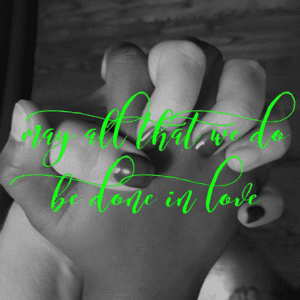 I’ve been an ACMB contributor for almost two years now, and I keep on avoiding a topic: race.
I’ve been an ACMB contributor for almost two years now, and I keep on avoiding a topic: race.
Honestly I haven’t written about it for all sorts of good reasons. The biggest one being that I’m white. I’m not an expert, plus white women are socialized to not talk about race. It’s not polite.
Even though that was never the message I got in my house growing up, it was a part of the larger societal message that I received daily. Conversations about race did not include white people.
Despite the social messages that race was taboo in polite conversation, I never really bought into that belief system. My faith taught me the value of social justice and the inherent human dignity of all people. I think that is sort of the party line for well-meaning, white liberals: we honor and value all people as equals. I know now that it’s a good place to start, but it isn’t enough.
But it’s almost like we are taught to stop there. We’re taught that knowing that all people should be treated equally is enough, and that moving from belief to action is not required to think that you’re a good person. The guilt we might feel for another person’s oppression is assuaged by the comfort that we don’t treat people unequally.
Like many people, in college and graduate school, my friendship circle diversified substantially. I made friendships—deep and lasting friendships—with people of different races and religions. I studied about race relations and world religions.
I thought I understood.
I thought I was well versed in the social, political, cultural, emotional, and religious issues that surround race.
I wasn’t.
Those of you who know me, or have read other things I’ve written, know that I have a child who is black. When we adopted Davis, I felt like I was race competent.
I wasn’t.
I was living as a non-racist. I understood the basics. I didn’t actively engage in discrimination. I intellectually and philosophically valued all people as equals. I even understood some of the systems of oppression. I wasn’t anti-racist. I hadn’t learned to confront my own unconscious bias. I hadn’t examined how my inaction made me complicit in the systematic subjugation of others. I hadn’t learned how to really talk about race. I hadn’t figured out how to stand up in those uncomfortable moments and confront the dehumanization of others.
This is the deal: our brothers and sisters of other races, religions, and sexual orientations face bigotry
EVERY SINGLE DAY.
Too many people in our country are seen as “other”—as someone who doesn’t belong or doesn’t deserve equal opportunity or equal protection under the law.
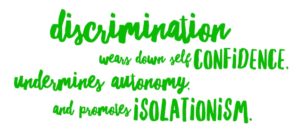 I won’t pretend to understand how it feels, but it has been described to me as “soul crushing.” Having a family member of a different race is as close as I will ever be able to come to understanding the toll of racism in America. It provides a sideways glance, a fractional glimpse of the heartache and destruction.
I won’t pretend to understand how it feels, but it has been described to me as “soul crushing.” Having a family member of a different race is as close as I will ever be able to come to understanding the toll of racism in America. It provides a sideways glance, a fractional glimpse of the heartache and destruction.
I’ve learned a lot in the last 12 years. Many of Davis’s stories are shockingly sad, even when taken in isolation. The emotional toll they take, when piling up day after day, week after week, year after year, is greater than any child, any person should have to bear.
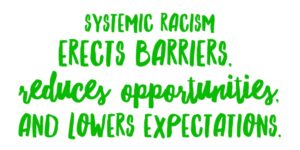
I could tell you all sorts of these sad stories, but at some point that just becomes like a train wreck. You don’t want to look because it is so awful, so violent and deadly, but you also can’t stop watching. The sad stories don’t serve a meaningful purpose in understanding race relations, because most of us are too far removed for the stories to really drive empathy, much less action.
So instead, I’ll share a few things I’ve learned over the last 12 years—12 years of watching my sweet young boy, my precious young black son, navigate the world and learn to deal with the reality of race relations in the United States today:
Colorblindness is a myth.
Colorblindness is part of that socialized white politeness that tells us we are all the same and shouldn’t talk about or even notice differences based on race. It’s simply not true—we notice race. Beyond that, pretending to not notice our differences denies the rich beauty of our different cultural heritages.
Expand your circle.
The best tool to combat the racial and cultural divide is personal connection. Dismantle fear and dehumanization by expanding your circle. Befriend people outside of your group.
Confront your own bias.
Do the intentional, soul-searching work to confront your own bias. When those moments creep in and I look suspiciously at another person, I have to ask, “Why?” Those times when an implicit bias gets the best of me, I have to confront it. I have to examine it and acknowledge it; otherwise I’ll never move past it.
Listen more, talk less.
I know enough to know that I still don’t know enough. Racism affects me obliquely—mainly through my undying love for Davis. I’m not an expert. So in mixed race groups, I might ask a few questions, but I mainly do a whole lot of listening. It is my best opportunity to learn.
If you are white, recognize that racism isn’t about you. Any of your sad or guilty feelings are yours to manage; don’t ask a person of color to make you feel better about those emotions.
Stand for justice.
Start in your own inner circle and expand from there. Don’t let insensitive or demeaning jokes and comments go unchecked. Speak up about oppression, disempowerment, economic injustice, the hyper-sexualization of black women and girls, and the mass incarceration of black men. Build other allies in your community. Support people of color in leadership positions. Talk with your children about racism and injustice.
Honestly, there are so many other lessons I have learned—too many and too complex for this short essay. So I’ll end with a reflection I wrote a few months ago on race, religion, and sexuality.
If you find yourself fearful this week…
If you find yourself looking suspiciously at another person…
If you find yourself worried that a specific group of people is dangerous…
If you find yourself thinking another human being deserves less protection under the law than you do…
If you find yourself drawing close to other people like you…
…I encourage you to examine your fear.
…I implore you to look at your friendship circle to see who is missing.
…I pray you will reach out in love to the person you fear and seek to know them.
…I hope you know deep down in your soul that protecting the most vulnerable people in our society builds us all up.
…I call you to resist the false security of tribalism.
May all that we do, be done in love.





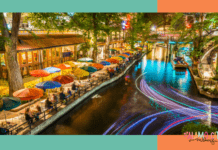

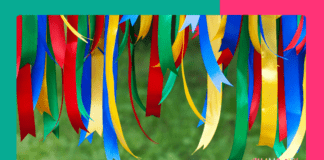




So many thoughts on this wonderful post but the main thought is that it’s necessary. Thank you for writing about the issue of race with such openness and honesty. I feel very challenged and encouraged by your words.